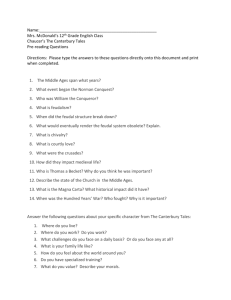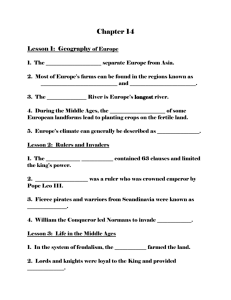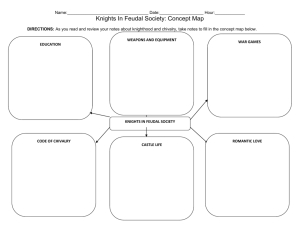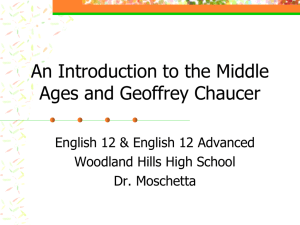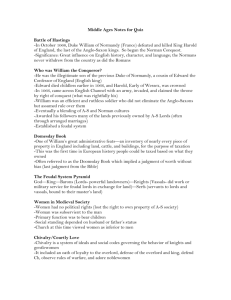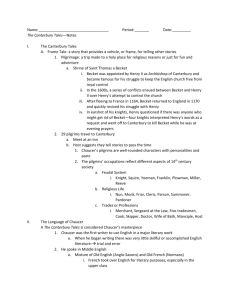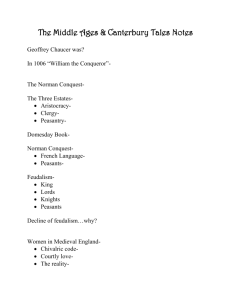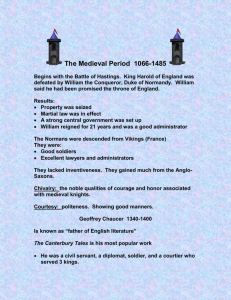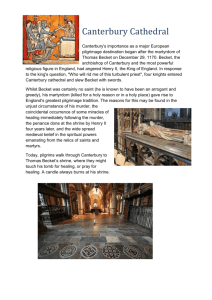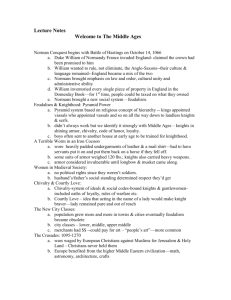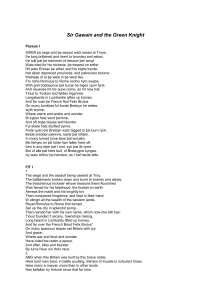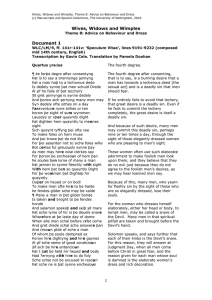The Middle Ages
advertisement
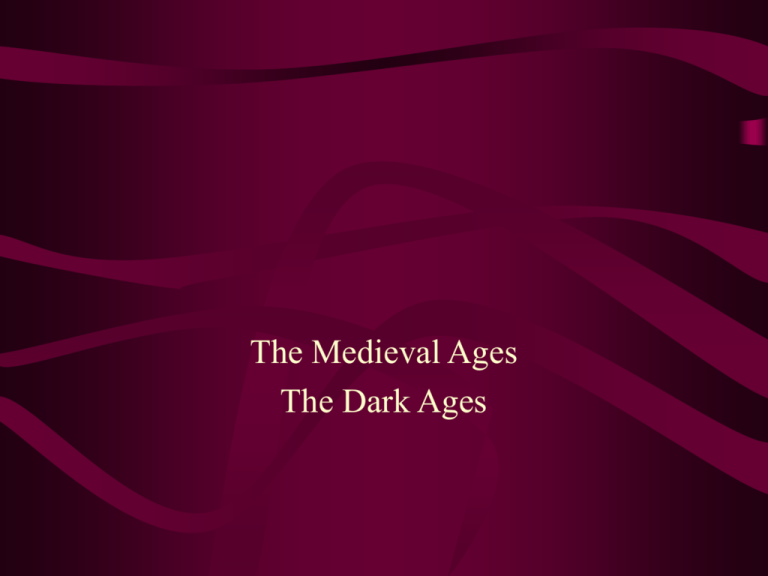
The Medieval Ages The Dark Ages 1066 • Begins in 1066 when Edward the Confessor died. He left no heirs to the throne sparking a three-way battle for the throne. William the Conqueror, who was the Duke of Normandy, won. It was the last time England has ever been successfully invaded. He inventoried every piece of property in England so that people could be taxed based on what they had. Feudalism God Pope This is a system that broke people up by property, military, and social behavior. King Landowners Divine Right means that since God knows all, He knew what one would do when they got a position of power. Since He let them get that position of power, He obviously agrees with their decisions. An order from a king or pope was an order from God. Knights Serfs Knights • Were trained at a very early age to be warriors and loyal to their landowner. They practiced chivalry. • Chivalry consisted of: * Chivalry does not extend to treating peasants nice * – Loyalty to landowner – Obey the rules of war – Adoration of a lady (not necessarily your wife) for self improvement (Courtly Love) Courtly Love • Knights would often fight for the honor of their lady. He would be brave for her, honorable for her, but she would always be “above” him. • This idealism created a form of literature about idealistic themes. This genre is called romance. The best romance in England during this time was Sir Gawain and the Green Knight Merchant Class • As time progressed, a new class of people emerged that did not fit into the feudal system. These merchants would try to look rich. Much of the literature and art produced during this time was for the merchant class. Major Events • The Crusades There were several attempts to attack Jerusalem and free it from the Muslim occupancy. This was urged on by Pope Urban, but the Europeans could not hold Jerusalem for long. However, these wars did bring society together and introduced math, astronomy, and architecture to England. Thomas a Becket Becket was the Archbishop of Canterbury. Since he was popular with the people, a personal friend of King Henry II, and held such high position with the church, Henry asked him to decide a matter between Henry and the church. Beckett sided with the church. Henry II killed him on the steps of Canterbury. This caused the public to be very upset with the king and allowed the church to have more power (and more corruption). • The Hundred Years War (1337-1453) Britain vs. France on who owned land in Western France. It brought much of England together and changed how war was fought. It did away with the bulky knight armor because the English were so good with their long bows. England was winning for most of the war, but eventually France retained their lands. Joan of Arc was of this time. • The Plague Known also as The Black Death, the Bubonic Plague reduced the population by 1/3. This caused a labor shortage and gave more power to the serfs. The average life span during this time is 25 – 30 years. Ring around the rosies… NOT a rhyme about the plague! Middle English • Far different from Modern English, • Oure fadir þat art in heuenes halwid be þi but still readable. It was the name; common man’s language. þi reume or kyngdom • All literature is written in three come to be. Be þi wille languages: don in herþe as it is • French – for the elite dounin heuene. yeue to us today oure eche • Latin – for the scholarly dayes bred. English – for the lower class. And foryeue to us oure dettis þat is oure synnys as Chaucer wrote several works in we foryeuen to oure English, which is unusual and made dettouris þat is to men þat English a more acceptable language. han synned in us. And lede us not into Most stories during this time retold temptacion but delyuere other people’s stories and had us from euyl. morals. Canterbury Tales • Written by Geoffrey Chaucer. • This story is unfinished. It was to include 120 tales, but only 24 were written. • Frame Story – a story that has several unrelated stories in it. In this book, the frame is several pilgrims on their way to Canterbury. They tell stories to pass the time. • The characters show all aspects of life. Many are corrupt. • Written in iambic pentameter (10 syllables grouped stressed/unstressed) couplets (every two lines rhyme)
